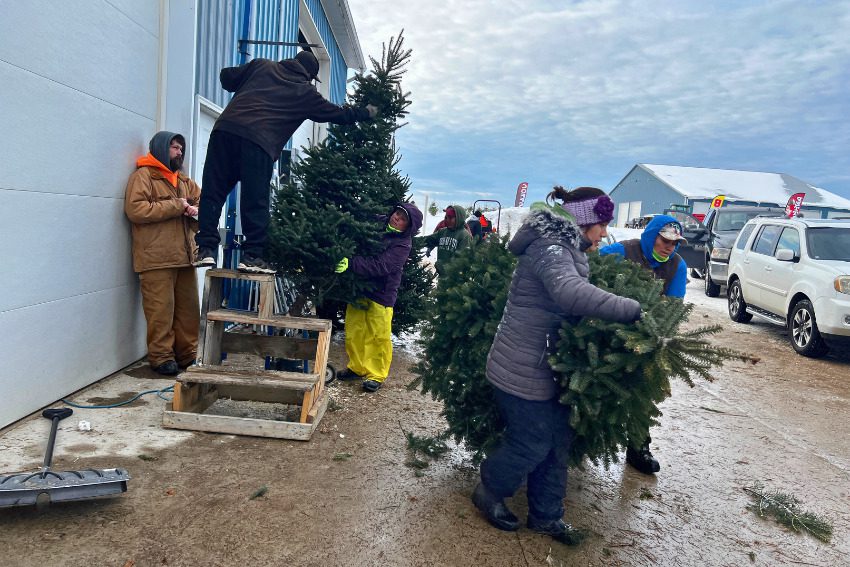
Photo by Brandon Byrd via Rural Democracy Initiative
More than 50 advocates met in Omaha, Neb. late last month to discuss their federal and state policy priorities to help rural communities across the United States.
The 2023 Rural Policy Action Summit was hosted by several organizations whose work focuses on advancing the quality of life for those who live in America’s smaller communities, including the Rural Democracy Initiative, Health Care for America Now, People’s Action, RuralOrganizing.org Education Fund, Farm Action, and State Innovation Exchange.
Participants recommended policies that “would expand the tools and resources for small businesses, family farmers, and local communities,” according to a press release. They also discussed the issues of market concentration and monopoly power, which have increasingly harmed rural communities, family farms, consumers, and even the greater economy.
“For too long, monopolistic corporations supported by government policies have been allowed to extract unprecedented wealth from farmers and their rural communities,” Joe Van Wye, policy and outreach director at Farm Action said in a statement. “The summit brought forward the broad constituencies to join together to change this reality for everyone that lives in rural America. Together, we will transform our food system into one that revitalizes rural communities, strengthens local economies, empowers farmers to succeed, and delivers nutritious food to every American.”
This summit comes as lawmakers continue to negotiate over the 2023 Farm Bill, a major source of federal investment in rural America.
Since the 1930s, Congress has enacted 18 farm bills, as they’re typically renewed every five years. As these negotiations have commenced, dozens of different advocacy groups have been making their voices heard to fight for a farm bill that expands access to affordable, nutritious food, shifts power from corporate agricultural monopolies to local communities and regional food systems, improves conditions for food producers and other workers, provides climate solutions, and protects investments in rural clean-energy infrastructure.
Top Republicans have already spent the first half of the year proposing cuts to all sorts of social programs, including to the Supplemental Nutrition Food Assistance Program (SNAP), which gets about 75% of the Farm Bill’s total funds.
SNAP helps 41 million Americans feed their families every year, providing lower-income households with an average of $239 each month for groceries. Anti-poverty experts have said that that money is critical to keeping families from going hungry, especially in rural areas, where access to food is more limited.
Summit participants also spoke about the need for better access to reproductive health care in rural America, a particularly salient issue as Republican-controlled legislatures in several states have enacted abortion bans targeting women’s reproductive freedom.
“Our discussions raised access to abortion as critical to each of these rural needs,” Annie Contractor, the associate manager of Government Affairs at RuralOrganizing.org said in a statement. “We are coming away with a refreshed excitement to amplify the rural civic leaders doing the hard work to make their communities empowered, thriving, and equitable.”

Gwen Frisbie-Fulton: ‘The people closest to the problem are often the ones who can find the solution’
About two years ago, tents started to show up in my neighborhood along the creek beds and in small stands of trees. Most only became visible when...

A love letter to the working class, from Gwen Frisbie-Fulton
It started in the back seat of my family’s Jeep Cherokee, the one with the broken AC and vinyl seats that stuck to my thighs in the late summer...

Fresh food, stronger farms: Michigan invests millions to support local agriculture
A new ‘Farm-to-Family’ grant program aims to connect Michigan farmers with more consumers, boost local economies, and build a stronger food system....

Rooted in Tradition: How Michigan’s Christmas tree industry is keeping the holiday spirit alive
Family farms—and traditions—help Michigan produce more Christmas trees than almost every other state in the country. GOBLES—Under a clear December...

How Gen-Z is helping rural Michiganders turn out to vote in the UP
Michigan is one of several critical swing states in this year’s election, and for Carly Sandstrom, a Marquette native and canvasser with the...





